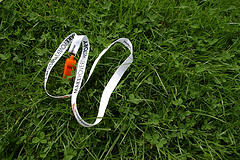Revision: vocabulary
Let's have a look at a typical structure of an English sentence:
| Subject | Verb | (Indirect Object) | (Direct Object) | (How) | (Where) | (When) |
| We |
had | a football championship | ||||
| They | play |
hockey |
in the stadium | every day |
||
| My friend |
gave |
me |
a book |
yesterday |
||
| The staff | greeted |
the guests |
politely |
 |
| By Daveybot. C. Common |
So that you notice how word order in English works, try to do the same with the following sentences:
1. Walked / the beach / we / slowly / along →
2. Her children / she / always / a big breakfast / makes →
3. Thursday / the boys / their bikes / ride / every →
4. to have / would / for Christmas / bike / a new / like / you ?→
5. His girlfriend / last week / his laptop / lent / John →
1. Paco / a / mac / was / in England / wore / when / he .
.
2. a/ The / in / football / football / team /man / played.
.
3. could / objects / flying / see / They / some / their/ heads / over.
.
4. All / very / them / excited / got / of.
.
Adjectives ending in -ed or -ing
Choose the right adjective to complete the sentences:
WORRYING - RELAXED - DISAPPOINTED - CONCERNED - BORING - CONFUSING - TIRING - SURPRISING - TERRIFIED - EMBARRASSING - SURPRISED - TERRIFYING
1. John's mother was that he passed all his exams in June. He hadn't studied very much
2. Her weight loss was very . She looked really ill
3. After getting a massage I felt very
4. I was really when I didn't get the job
5. The film "The Wolf Man" was . The children who were watching it were
6. I don't like people who only talk about themselves. They are really
7. There were a lot of road signs. It was very
8. I was after reading the news headlines
9. Working as a waiter is a very job
10. The teacher forgot to close his zipper. It was very
11. It is not that you failed the exam. You didn't do any work
 |
| By Lester C. Guernsey. Public domain |
| forgetful - excellent - significant - historical - natural - terrible - massive - early - homeless - global - responsible - ready |
Put the word in brackets into the correct form. You will have to use prefixes and/or suffixes.
Example: The rate of (EMPLOY) ... in this country has been rising steadily → UNEMPLOYMENT (UN: PREFIX - MENT: SUFFIX)
1. I don't remember my (CHILD) as a happy period of my time
2. He looks really shabby. He doesn't take any care about his (APPEAR)
3. Her (APPLY) for the job wasn't accepted
4. I think I'll be (ABLE) to finish all these letters for tomorrow. I am sorry
5. He is said to be a very (EFFICIENCY) worker
6. I am sorry to (AGREE) with you, but you are mistaken
7. I had no (CHOOSE) , I had to make that (DECIDE)
8. The police arrested the man without (EXPLAIN)
9. The tsunami caused terrible (DESTROY) in the area
10. Our (FLY) was cancelled becuase of bad weather
11. She looked at her (REFLECT) in the mirror
12. Failing her exams was a great (DISAPPOINT) to her
13. She arrived late at work because she had (SLEEP)
14. He has won the (CHAMPION)
 |
| By Vasily V. Titov. Public domain |
1. Paco thinks that global warming is responsible for and (natural; environment) disasters.
2. A huge earthquake caused the (dread) tsunami in Thailand in 2004.
3. It was a (pity) sight to see all those people floating after the tsunami.
4. The earthquake in San Francisco was (catastrophe).
5. It is (logic) that people in (coast) Thailand are (frighten) of tsunamis.
|
|